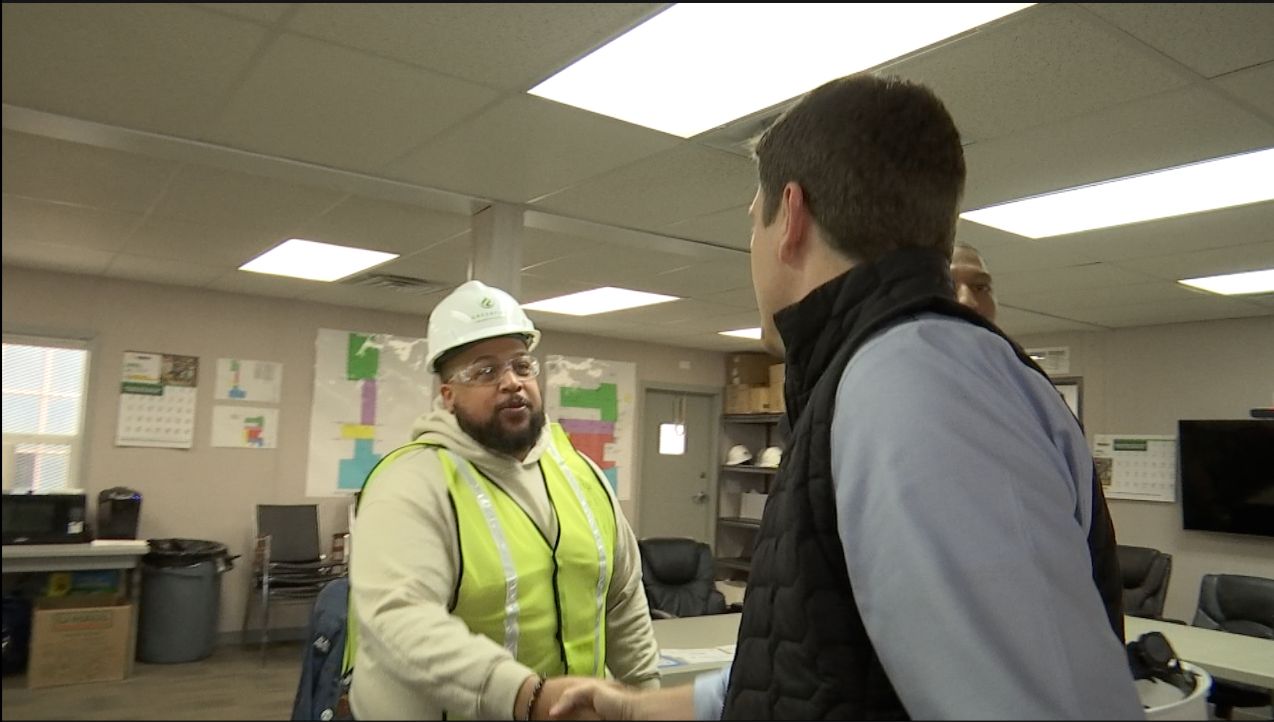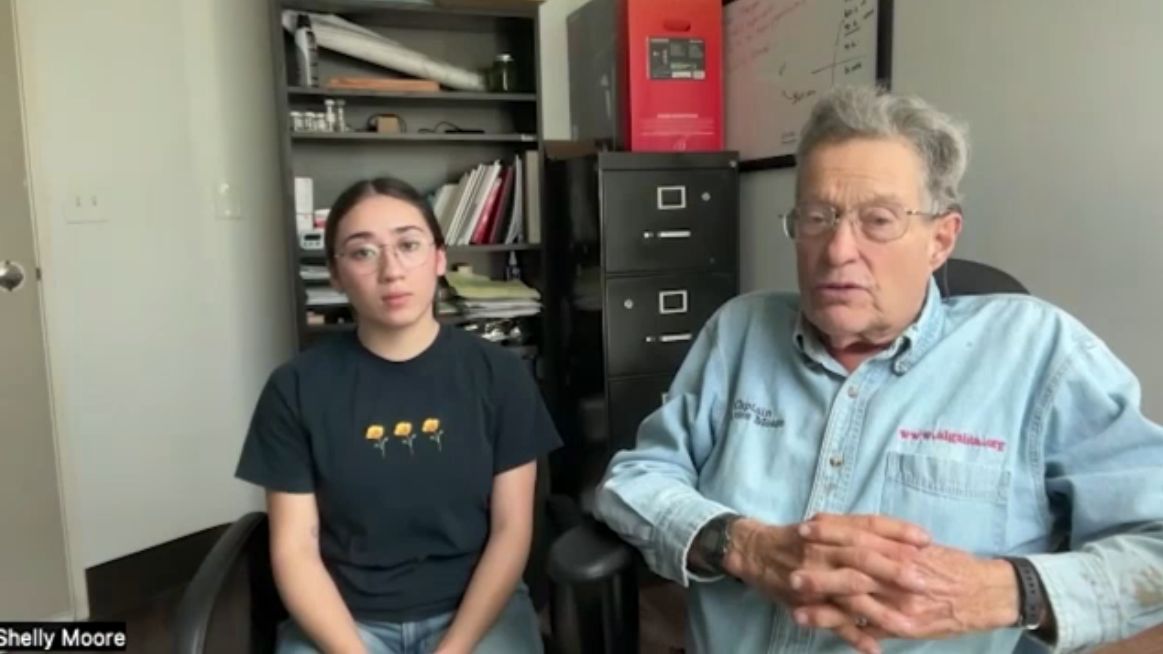MILWAUKEE— Monday marked the start of the district work week for Congress. And while most lawmakers returned to their own districts, Rep. Jim Himes, D-Connecticut spent the first half of the week in Wisconsin.
“It’s important that we come here because economic disparity, which is the subject matter for the committee looks a little different depending on where you are in the United States,” Rep. Himes said.
As the chair of the U.S. House Economic Disparity Committee, Himes led two field hearings in the Badger state to take a closer look at how those disparities are impacting Wisconsin.
Common ground and agreement
Reps. Bryan Steil, R-Janesville, and Gwen Moore, D-Milwaukee, hosted the Connecticut congressman. It was a bipartisan move that both lawmakers agreed is rare in Washington. They traveled together to Kenosha and Milwaukee this week, facilitating conversations between the chairman, constituents and community stakeholders around Wisconsin’s workforce needs and disparities in the state’s housing market.
“Some things just aren't partisan in nature,” Rep. Steil said. “Now, we're going to have our debates on policy and that’s completely reasonable. But, I think what's so important is that we can disagree without being disagreeable, and then really do the hard work of trying to find the areas where we can actually seek common ground and agreement.”
Pathways to opportunity
Rep. Steil took the lead at Monday’s hearing, hosting a panel of experts in higher education to workforce development at UW-Parkside.
“There are so many factors at play that are impacting people's ability to get a good job, a better job, a high paying job,” Rep. Steil said. “[Such as] transportation, housing, education, etcetera…”
The event explored those challenges and examined the lingering labor shortage problem across the state despite Wisconsin’s record low unemployment rate.
“I believe that's a large part of the mismatch that we have right now, between the jobs are available in the skills and preparation that our workers have,” Rep. Steil said. “And so the more that we're addressing that, the more that we're making sure that we are getting workers the skills that they need to be able to be successful, the more we're going to bring workers off the sidelines and back into family sustaining jobs.”
Fair and affordable housing
Rep. Moore led the second leg of the committee Wisconsin visit. She brought in local leaders to talk about housing inequality in her district.
“I think one of the things that I hear as a Democrat, and quite frankly as a person of color who's a Democrat, is just an oversimplified oversimplification of the problem,” she said. “No, it's systemic.”
Community advocates like Reggie Jackson agreed. He’s the co-owner of Nurturing Diversity Partners, a Milwaukee-based organization that provides diversity, equity and inclusion training and consulting. He pointed to the struggle to maintain and grow the historic Halyard Park neighborhood as an example of a Milwaukee’s housing inequities.
“In the late 1970s and early 1980s, a group of Black families that were doing really well financially but couldn't get out to the suburbs because they were unwelcoming places, decided to build a suburb within the city and so they built this neighborhood,” Jackson said. “But unfortunately, because of some of the development that's happening in this area, the property values are increasing. Some of the residents are older, and they're in jeopardy of possibly losing their homes as their property value has increased dramatically.”
In addition to encroaching new development, there are neighboring homes close to Halyard Park that could desperately use the investment.
"We're literally only two blocks away from some of the most distressed housing in Milwaukee,” Jackson said.
Jackson said he believes these problems illustrate an even bigger issue for the city: a growing racial gap in homeownership.
Per Wisconsin Policy Forum, just 27% of Black households in Milwaukee own their homes, the second lowest Black homeownership rate for a U.S. city.
“It's one of those situations where, unless we're able to turn around the economic situation in terms of median family wages in Milwaukee, it's gonna be very hard for us to turn that corner and make it so that a larger percentage of Blacks in the city become homeowners," Jackson said.

Jackson made the same case to Reps. Moore, Steil and Himes. He was a presenter for parts of a bus tour of troubled Milwaukee neighborhoods the lawmakers participated in.
Following the tour, the three congresspeople met with community developers targeting those same areas and then wrapped the day with a field hearing featuring even more local stakeholders. The committee plans to file a report by the end of session that will include lessons learned from the trip.
“I hope that the report is really about what we found, and then focuses on the real systemic issues,” Rep. Moore said. “[I hope] we don't veer off into declarations about people's character in order to define and describe what disparities exist.”



